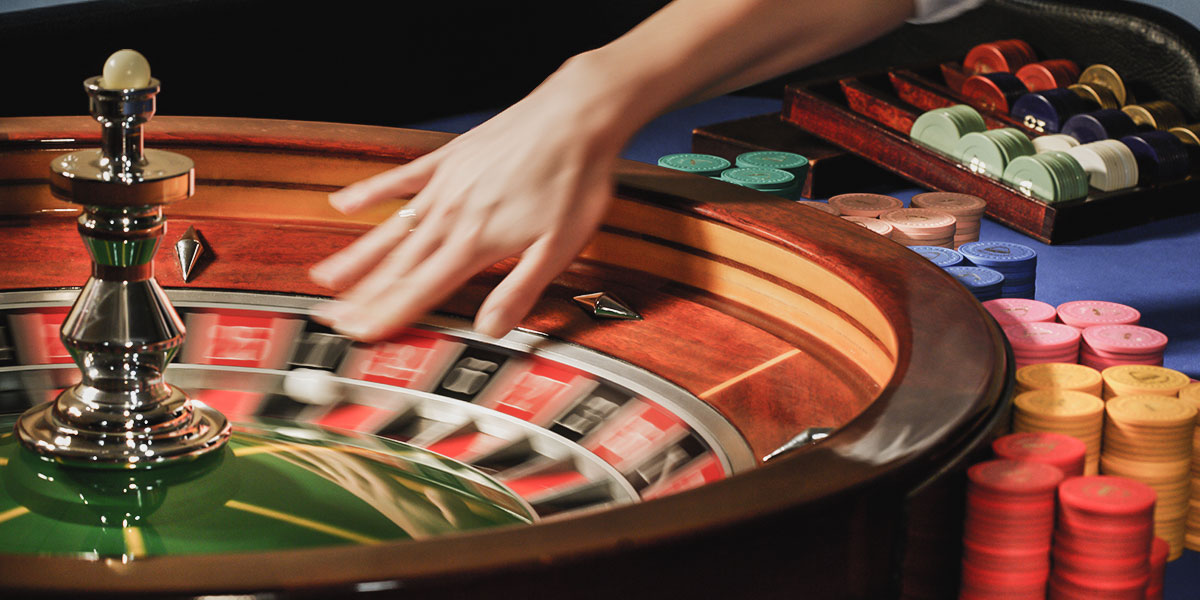
Casino games have long been a staple in human culture, providing not just entertainment but a intriguing reflection of our hopes, ambitions, and concerns. From the rotating wheels of a slot machine to the tactical play of poker, these games represent a variety of human sentiments and events. At their core, casino games are more than a chance to win money; they are a snapshot of life itself, where risk and reward merge and luck can change in an eye blink.
As players gather around tables or sit in front of glowing machines, they participate in a ceremony that transcends mere betting. These games mirror our instinctive desires for relationships, thrill, and the search for fortune. They also reveal deeper truths about human behavior, such as our relationship with chance and the adrenaline of the unknown. In exploring casino games, we discover not only the mechanics of play but also the complex weave of the human journey, showcasing our interconnected narratives of aspiration and reality.
The Psychology of Gambling
Wagering is intrinsically connected in the psyche of individuals, appealing to various emotions and wants. The thrill of risk-taking is a core aspect that draws players in, whether the excitement of spinning a roulette or the excitement of drawing a winning card in a poker game. This adrenaline is frequently likened to other forms of thrill, as the unpredictability of outcomes triggers a distinct psychological response. Players often find themselves entranced by the possibility of winning big, leading to an almost magnetic draw toward gambling games.
Another, an essential component of the psychology behind gambling is the concept of optimism and ambition. https://rr88.academy/ Participants often indulge in fantasies of financial freedom and the opulent lifestyle that can follow winning. This hope fuels their ongoing participation in gambling, as it provides a sense of purpose and the conviction that a transformative win could be just one wager away. The narrative of overcoming odds and achieving success resonates with many, strengthening their dedication to play and involve themselves with these games.
Lastly, social aspects play a crucial role in gambling psychology. Casino environments are designed to promote social interaction, where players gather to share the experience of wins and losses. This communal aspect not only amplifies enjoyment but also affects behavior, as individuals often imitate the actions of others around them. The collective approval found in shared excitement can enhance the emotional experience, making casino games a mirror of not just personal desires but also collective engagement within the gaming community.
## The Dual Nature of Risk and Reward
Gambling games embody the subtle balance between danger and gain that resonates deeply with human nature. The excitement of placing a bet is often accompanied by a rush of adrenaline, as participants are confronted with the chance of a huge payout, yet fully aware of the possibility to lose. This bipartisan experience reflects a fundamental aspect of life: the decisions we face often come with intrinsic risks, and the pursuit of reward can compel us to embrace risks we might not typically consider. In this way, casino games reflect real-world choices, enticing gamblers to risk not just their capital, but also their hopes.
The allure of big prizes and winnings fuels a sense of optimism, motivating players to imagine a more promising future that could manifest from a fortunate turn of the roulette or dealing of a hand. This optimism can drive individuals to engage in greater risks, encouraging them to take greater risks in search of monetary success. However, just as in life, the results of these risks can lead to both triumph and failure. The stories of both big winners and those who have faced losses everything at the casino demonstrate the unpredictable nature of luck and its significant impact on our lives.
Ultimately, the interaction of engaging with gambling activities serves as a potent reminder of the human condition. Every game played is filled with the tension of risk, as players weigh the rewards against the dangers. This balance not only highlights the thrill that comes with gambling but also exposes the risks that come with the longing for more. As we navigate the complexities of choice and results in both the gambling world and in life, we find that the pursuit of risk and reward shapes our character and lives in profound ways.
Culture and Isolation in Gambling Culture
Gambling culture is a unique combination of social engagement and individual pursuit, reflecting the contrasts of human experience. Gamblers often come together around tables, experiencing in the excitement of the action, celebrating wins, and commiserating over losses. This communal aspect is crucial, as it establishes a sense of community and camaraderie among varied groups of individuals. Regular visitors to casinos may form friendships and develop routines, turning the gambling venue into a alternative home where they feel linked to a greater community of gamblers.
However, the attraction of gambling activities can also result to loneliness. As individuals become immersed in the thrill of playing, they may withdraw from personal relationships or fail to engage with the environment outside the gaming space. For some, the search of a windfall can distract from genuine connections, leading to isolation. The experience of being surrounded others yet feeling solitary is not rare, as the attention shifts from shared enjoyment to the individual concerns of each individual’s path.
This interaction of community and isolation creates a vivid mosaic that defines gaming atmosphere. It highlights the complexity of social interactions, where joy and despair coexist. Casinos serve as both a sanctuary for social interaction and a stage for individual struggles, demonstrating how deeply connected our yearning for companionship and the individual quest for fortune can be. In navigating this environment, players confront their own narratives—seeking both the rush of the game and the fellowship of fellow players, eventually reflecting the wider spectrum of human experience.